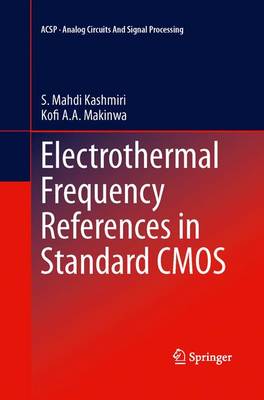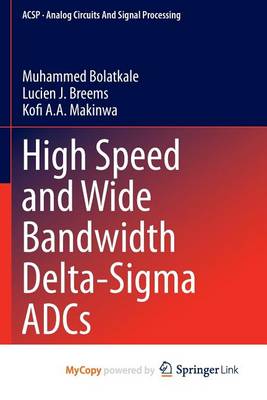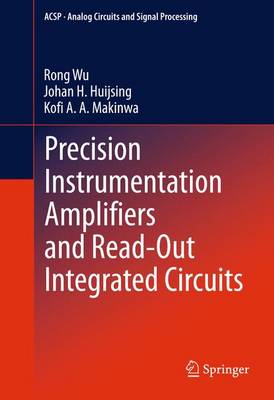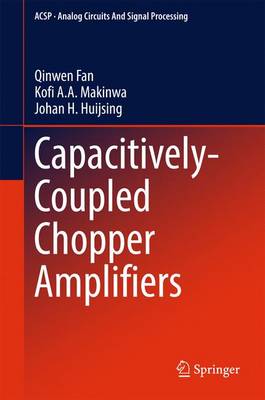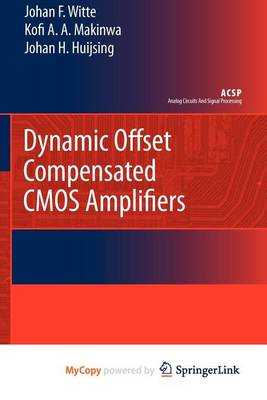Analog Circuits and Signal Processing
5 total works
Electrothermal Frequency References in Standard CMOS
by S. Mahdi Kashmiri and Kofi A. A. Makinwa
High Speed and Wide Bandwidth Delta-SIGMA Adcs
by Muhammed Bolatkale, Lucien J Breems, and Kofi A. A. Makinwa
Precision Instrumentation Amplifiers and Read-Out Integrated Circuits
by Rong Wu, Johan H. Huijsing, and Kofi A. A. Makinwa
This book presents innovative solutions in the design of precision instrumentation amplifier and read-out ICs, which can be used to boost millivolt-level signals transmitted by modern sensors, to levels compatible with the input ranges of typical Analog-to-Digital Converters (ADCs). The discussion includes the theory, design and realization of interface electronics for bridge transducers and thermocouples. It describes the use of power efficient techniques to mitigate low frequency errors, resulting in interface electronics with high accuracy, low noise and low drift. Since this book is mainly about techniques for eliminating low frequency errors, it describes the nature of these errors and the associated dynamic offset cancellation techniques used to mitigate them.
Capacitively-Coupled Chopper Amplifiers
by Qinwen Fan, Kofi A. A. Makinwa, and Johan H. Huijsing
This book describes the concept and design of the capacitively-coupled chopper technique, which can be used in precision analog amplifiers. Readers will learn to design power-efficient amplifiers employing this technique, which can be powered by regular low supply voltage such as 2V and possibly having a +/-100V input common-mode voltage input. The authors provide both basic design concepts and detailed design examples, which cover the area of both operational and instrumentation amplifiers for multiple applications, particularly in power management and biomedical circuit designs.
Dynamic Offset Compensated CMOS Amplifiers
by Frerik Witte, Kofi Makinwa, and Johan H. Huijsing
Dynamic Offset-Compensated CMOS Amplifiers describes the theory, design and realization of dynamic offset compensated CMOS amplifiers. It focuses on the design of general-purpose wide-band operational amplifiers and instrumentation amplifiers.
Two offset compensation techniques are described: auto-zeroing and chopping. Several topologies are discussed, with which these techniques can be used in the design of wide-band dynamic offset-compensated amplifiers. Four implementations are discussed in detail: two low-offset wide-band operational amplifiers, a low-offset instrumentation amplifier, and a low-offset current-sense amplifier, which can sense the current drawn from supply voltages up to 28V .
